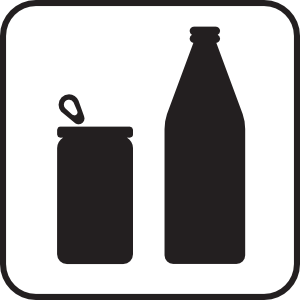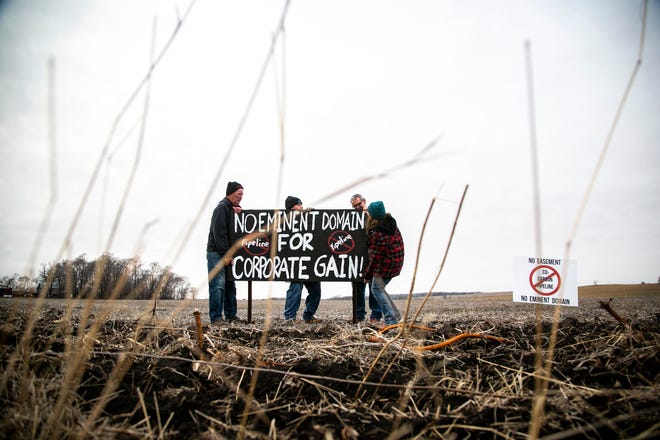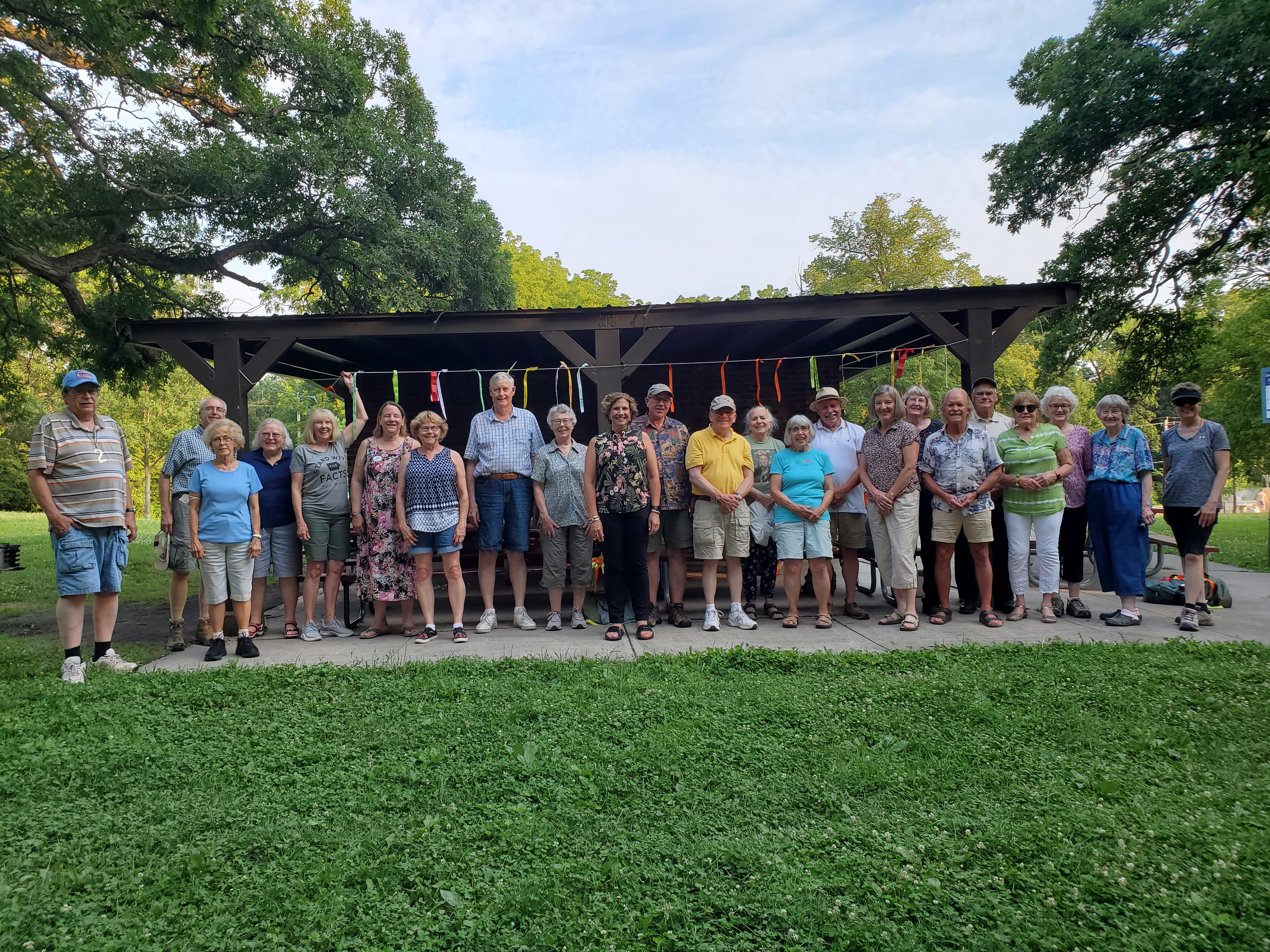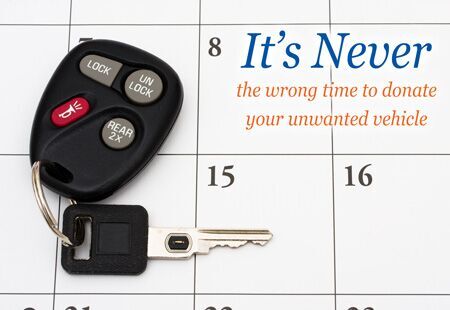Mother Nature is telling us that spring is just around the corner. The redwing blackbirds are back in Iowa. I noticed large numbers of geese and ducks are winding their way north. And the robins have started their return trips.
We just passed through a major milestone at the Iowa Legislature - the second funnel. Most legislation has to be approved by a vote in either the House or Senate plus a subcommittee and a committee of the other chamber in order to move forward. What this means is that a large number of bills have been rejected for the year. Other bills remain active -- efforts to change the bottle deposit law which will make it less convenient to return empty containers and misguided efforts to implement the I-Will 3/8 cent sales tax while funneling significant amounts of money away from its original purpose -- and we are deeply concerned about these bills. On the other hand, we are supporting legislation that ensures that costs for public records be reasonable and also legislation that requires public schools to test for radon and undertake remediation if high levels are detected. We are also supporting a moratorium on the use of eminent domain for hazardous liquid pipelines - SF2022.
We will continue to be your eyes and ears at the state capitol.
Take care,
Pam Mackey Taylor, Chapter Director and Newsletter Editor
What you can do to help the environment
- Ask your state senator to support radon testing in public schools and to undertake remediation if high levels of radon are detected - HF2412.
- Ask your legislators to keep the bottle deposit law working for all Iowans - continue the 10-minute convenience standard that says that a redemption center must be 10 minutes or less from a store, increase the handling fee paid to redemption centers, allow enforcement of the bottle deposit law if stores refuse to take empty bottles and no redemption center is close by.
- Ask your state representative to support SF2322 - ensuring that copies of public records are to be at no cost or reasonably priced.
- Ask your state representative and state senator to support a moratorium on eminent domain for hazardous liquid pipelines - SF2022.
- Ask your state senator to oppose the I-Will legislation SSB3157.
- Donate to the Iowa Chapter of the Sierra Club so that we can continue this work in 2022.
In this issue of the Iowa Sierran
Water Quality
-
Test results for PFAS in drinking water
News from the Legislature
-
New Poll Affirms Bottle Deposit Law is Popular: ask legislators to keep the bottle deposit law working for all Iowans
-
Testing for radon in schools makes sense
-
Proposed moratorium prohibiting eminent domain for hazardous liquid pipelines
Events
-
Join us for interesting and informative webinars and Lunch and Learns
Plus
-
Contribute to the Iowa Chapter
-
Volunteer for the Iowa Chapter
-
Calendar of events
-
To see the archive of previous Iowa Chapter newsletters
-
To see the White Pine Needle newsletter
New Poll Affirms Bottle Deposit Law is Popular: ask legislators to keep the bottle deposit law working for all Iowans
Since its inception in 1978, Iowans have benefitted from the bottle deposit law. We are all familiar with paying a nickel deposit on plastic, glass, and metal pop and alcohol containers which is returned to us when we bring the empty bottles back to the store.
Tell your legislators that you want to keep the bottle deposit law working for all Iowans.
To find your legislators, see www.legis.iowa.gov/legislators/find
To look up your house member, see www.legis.iowa.gov/legislators/house
To look up your senate member, see www.legis.iowa.gov/legislators/senate
- Customers should be able to get their nickel deposits back when they return their empty containers
- The handling fee should be increased from 1 cent to 2 cents or more so redemption centers can remain open and can pay their workers a living wage.
- The allowed distance between stores and redemption centers should remain at 10-minutes or less. There are efforts underway to increase this to 15 or 20 miles, which will make it increasingly more difficult to return the empties.
- Keeping empty container redemption in the grocery stores and convenience stores.
- The Department of Natural Resources should be given the ability and authority to enforce the law if stores refuse to redeem empty containers and there is no redemption center 10 minutes away from the store
The Bottle Deposit Law is Popular. In fact, Iowans support expanding the bottle deposit law to include other beverage containers. The bottle deposit law diverts containers from the landfill and into recycled products. And the recycled bottles and cans provide a clean well-sorted valuable product. Further by encouraging recycling, less litter is strewn across the state. The bottle deposit law even provides spending money to those who collect discarded bottles and cans. The bottle deposit law provides jobs to Iowans who are involved in the recovery process. Iowa’s bottle deposit law has been a success.
The Bottle Deposit law is Popular.
In fact, Iowans support expanding the bottle deposit law to include other beverage containers. Iowans are universally supportive of Iowa’s bottle deposit law. A 2022 poll of Iowans, conducted by Selzer & Co. shows that:
- 84% of Iowans said the recycling law is good for the state.
- 80% said the state should keep the law as it is, or expand it to include more types of eligible containers and more retail locations where empty containers can be returned. Of those, 61% said expand the bottle deposit law, while 19% said they favor keeping the law as it is.
- 86% support adding places that will accept empty containers.
- 72% support increasing fees on stores and redemption centers to cover the program costs.
- 71% are in favor of adding more types of containers to the bottle deposit law.
- 51% support increasing the deposit from 5 cents to 10 cents.
The bottle deposit law diverts containers from the landfill and into recycled products.
Further by encouraging recycling, less litter is strewn across the state.
- According to the Iowa Department of Natural Resources, 71% percent of the beverage containers are recycled each year.
- Redeeming plastic, glass, and metal pop and alcohol containers provides an incentive to keep discarded containers out of roadside ditches and public areas.
- Returning beverage containers reduces the amount of waste that must be buried in landfills.
- Using the returned containers to create new products uses less energy than using virgin raw materials.
- The bottle deposit law even provides spending money to those who collect discarded bottles and cans.
- The bottle deposit law provides jobs to 870 Iowans who are involved in the recovery process.
The bottle deposit law has been a success!
New Senate bill to implement I-Will falls flat
The Governor signed the flat tax bill that was passed both the House and Senate without the I-Will 3/8 cent sales tax. Unfortunately the 3/8 cent sales tax that would fund the Natural Resources & Outdoor Recreation Trust Fund (commonly known as I-Will) has returned in another bill - SSB3157. This proposal falls flat and should be returned to the drawing board.
Although we have waited a long time to implement I-Will and its 3/8 cent sales tax increase, this proposal falls short in many ways. When the constitutional amendment was put on the ballot and voters went to the voting booth, the voters also were given a framework of how the I-Will money was going to be allocated and implemented, in Iowa Code 461.31 through 461.38. This is what the voters made their decision on. The language in SSB3157 breaks that trust.
Ask your State Senator to oppose the I-Will changes in SSB3157.![]()
To look up your senate member, see www.legis.iowa.gov/legislators/senate
To find your legislators, see www.legis.iowa.gov/legislators/find
-
Our parks and recreation areas have faced serious financial challenges - deferred maintenance, fewer park rangers, and damage from derecho and floods. All the while they have experienced expanded visits by Iowans and out-of-state visitors who love our parks. The state parks need the full funding that was imagined by the 3/8 cent sales tax.
-
The I-Will sales tax will expire in 2051. That is contrary to what the voters expected, which was a fund with no expiration date.
-
Diverting that funding to the nutrient reduction strategy, making that the top priority, misses some of the benefits of the state parks -- providing wildlife habitat, protecting threatened and endangered species, providing recreation, and providing solitude.
-
What's more there are no limits on the nutrient reduction strategy expenditures - including ensuring and verifying that the projects funded actually are reducing nutrients and setting water quality standards for nutrients and ensuring that the standards are met in a timely manner.
-
The bill puts Economic Development in charge of scoring those projects that are used for recreational purposes. These projects would include parks, recreation areas, water trails. That function should remain with the Department of Natural Resources. Economic Development has an entirely different focus - promoting economic development projects in the state - and should not be put in charge of parks and recreation.
-
Improvement of a land trail will be funded only if the maintenance of the trail will come from other sources. There is no reason that the maintenance should be excluded from the I-Will funds.
-
This bill changes how the funds are allocated. The allocation was a result of a compromise between the various parties who benefit from the I-Will 3/8 cent sales tax. There is absolutely no reason to change those allocations.
It may be tempting to jump at having some money dedicated to the I-Will programs, but we can do better. That is why we are asking that the Senators oppose the Natural Resources and Outdoor Recreation Trust Fund in SSB3157.
Ask your State Senator to oppose the I-Will legislation in SSB3157.
To look up your senate member, see www.legis.iowa.gov/legislators/senate
To find your legislators, see www.legis.iowa.gov/legislators/find
Testing for radon in schools makes sense
Indoor radon is the leading cause of environmental lung cancer in Iowa. 
Radon gas is released when uranium breaks down. Uranium is a natural chemical found in Iowa’s soils and rocks. Outdoor levels of radon are low. However, radon levels can build up inside a building. Radon is an odorless, tasteless, and colorless gas. The only way you know if you have high levels of radon is to test for it.
Given the high levels of radon found within the state, it only makes sense to have a program of testing schools for radon levels and then initiating methods to reduce radon levels if they are high.
Furthermore, it makes sense to repeat the tests every 5 years, just to make sure that radon levels remain safe.
Building radon abatement systems in new school buildings also makes sense.
Ask your state senator to vote yes on HF2412.
To look up your senate member, see www.legis.iowa.gov/legislators/senate
To find your legislators, see www.legis.iowa.gov/legislators/find
Bill curtailing fees charged for government records
The Sierra Club's work depends on access to public records. A bill (SF2322) is advancing through the Iowa legislature that would curb the excessive fees members of the public have been forced to pay for those records. In fact, members of the public, the media, and the Sierra Club have had to abandon requests when the quoted fees have been too large. ![]()
This legislation also limits charging for legal services for the redaction or review of public records. Currently the fees for redaction and review can been so excessive that private citizens cannot afford to view public records; that is not right. The cost for copying the records should be reasonable, not excessive and not at a profit to the agency.
- Citizens are entitled to copies of the public records. If you want copies of public records, government agencies are allowed to charge you for those copies. This legislation requires the expenses to be reasonable. In fact the legislation lays this out by saying: “Although fulfillment of a request for a copy of a public record may be contingent upon receipt of payment of reasonable expenses, the lawful custodian shall make every reasonable effort to provide the public record requested at no cost other than copying costs for a record which takes less than thirty minutes to produce. In the event expenses are necessary, such expenses shall be reasonable and communicated to the requester upon receipt of the request. A person may contest the reasonableness of the custodian’s expenses as provided for in this chapter.”
- Further, the legislation lays out the fees that can be charged for a legal review and redaction of the records: “Costs for legal services should only be utilized for the redaction or review of legally protected confidential information.”
One of the most important principles of open government is the public's access to government records. Yet, some governmental bodies are charging excess fees when people ask for copies of public records. One of the most egregious is the charging of legal fees for redaction and review of the records. During 2021 legislative session, a similar bill came before the legislature. During the subcommittee on that bill, people mentioned being quoted charges in excess of $200 an hour for legal services for reviewing and redacting public records. Although the Sierra Club has never been quoted fees that high, we have received quotes close to $200 an hour. That is excessive and should be stopped, which this legislation does.
- To look up your house member, see www.legis.iowa.gov/legislators/house
- To find your legislators, see www.legis.iowa.gov/legislators/find
Update on CO2 pipelines
Proposed moratorium prohibiting eminent domain for hazardous liquid pipelines
A bill was recently introduced in the House that would provide a 1-year moratorium on the use of eminent domain for hazardous liquid pipelines -- the Iowa Utilities Board shall not grant and a pipeline company shall not seek or exercise an eminent domain right under Iowa Code 479B.16 prior to March 1, 2023.
To find your legislators, see www.legis.iowa.gov/legislators/find
To look up your house member, see www.legis.iowa.gov/legislators/house
To look up your senate member, see www.legis.iowa.gov/legislators/senate
One of the many reasons we oppose the carbon dioxide pipelines proposed to run through Iowa is that the law allows the use of eminent domain to force landowners to give up their land for the pipelines. Eminent domain is one of the most drastic actions that can be taking against private property rights. It should be exercised only for a public purpose and only by a governmental entity responsive to the public. It should not be used to enrich a private company, such as the companies developing the carbon dioxide pipelines.
We have seen that the companies pursuing projects use the threat of eminent domain to coerce and intimidate landowners into signing “voluntary” easements or sale of their property. On the other hand, we have seen companies, if they do things correctly, can obtain the land or easements they need without eminent domain. This has been done for large solar and wind energy projects and electric transmission lines.
It is also important to note that, at this point, 24 county boards of supervisors have submitted objections to the carbon dioxide pipeline projects in the Utilities Board dockets. Some of these boards are controlled by Republicans and some by Democrats. Again, this issue in bipartisan. They all identify the abuse of eminent domain as a primary objection.
The people of Iowa, and especially the impacted landowners, are united in their opposition to using eminent domain for private projects. The landowners need to be treated justly and fairly. It is a matter of fairness that their private property rights be respected.
Test results for PFAS in drinking water
Environmentalists have become increasingly concerned about a class of chemicals called perfluoroalkyl and polyfluoroalkyl substances, often abbreviated to PFAS. There are thousands of compounds, estimated over 5000, in the PFAS class. PFAS persists in the environment and does not break down. These substances are difficult to dispose of. That is why they are called “forever chemicals”. The compounds are linked to cancer, liver damage, and abnormal childhood development.
The Iowa Department of Natural Resources is testing public drinking water sources and finished water to determining if there is PFAS contamination. DNR is reporting PFAS testing results on their webpage. The DNR is updating their webpage as testing is completed.
Although a few cities have PFAS in their water supplies (Rock Valley, Ames, West Des Moines, Sioux City, Tama, Camanche, Davenport, Muscatine, Burlington, Keokuk), the levels are below levels harmful to human health.
That being said, the Central City water tests showed 61 part per trillion which were relatively close to the federal safety guideline for drinking water which is a limit of 70 parts per trillion. DNR looked into reasons for the higher levels, finding that the city's well is within a mile where a fire occurred at Iowa Gold Distributing. It is believed firefighting foams containing PFAS chemicals were used to extinguish the fire. A train derailment near that area may have contributed to PFAS contamination. The DNR also suspects that a manufacturing plant may have contributed to the PFAS.[1]
The DNR has an action plan for testing drinking water sources across the state. [2] The testing began in October, 2021, focusing on 59 cities, 2 businesses, and 3 rural water systems. [3] The DNR is testing all surface water supplies and systems that rely on shallow alluvial wells. [4] They are testing raw water before it is treated and finished water (which is treated water) for 25 different PFAS compounds. [5]
Several sites along the Mississippi River showed low levels of PFAS chemicals - Camanche, Davenport, Muscatine, Kammerer Mobile Home Park, Burlington, and Keokuk. According to reporting by Jared Strong, for Iowa Capital Dispatch, Corey McCoid who is a supervisor at the DNR's Water Supply Operations Section, stated that "tests of Illinois cities along the Mississippi have yielded similar results". [6] David Cwiertny, director of the Center for Health Effects of Environmental Contamination at the University of Iowa, was "troubled by the consistency of the contamination of a large river, as measured in cities that are many miles apart. This suggest that the Mississippi River, at least along the 100-mile plus stretch between Davenport down to Keokuk, contains a mixture of PFAS chemicals, and any other community in that area using the Mississippi as a water supply could be vulnerable to PFAS exposure. Given the size of the Mississippi River at those concentrations, we are talking on the order of kilograms of PFAS chemicals per day being discharged down the Mississippi." [7]
In November of 2021, we carried an article PFAS – toxic “forever chemicals”
See our presentation "PFAS - "forever chemicals" are a serious environmental concern"
Footnotes
[1] Jared Strong, "Central City water has 'forever chemicals' near threshold", Cedar Rapids Gazette, March 14, 2022
and Marissa Payne, "'Very low' levels of forever chemicals found in C.R. water", Cedar Rapids Gazette, March 15, 2022
[2] “PFAS Action Plan”, Iowa Department of Natural Resources, January 23, 2020; see the DNR PFAS website at www.iowadnr.gov/Environmental-Protection/PFAS
[3] For a list of the cities and rural water systems being tested, see Jared Strong, “Drinking water for 59+ cities to be tested for ‘forever chemicals’”, Iowa Capital Dispatch, October 21, 2021
[4] Tom Cullen, “’Forever’ chemicals widespread in Northwest Iowa”, The Storm Lake Times, October 29, 2021
[5] Kate Payne, “Iowa DNR is testing more than 50 public water systems for ‘forever chemicals’ but no plans for private wells”, IPR News, Iowa Public Radio, March 22, 2021
[6] Jared Strong, "Iowa drinking water from Mississippi River has 'forever chemicals", Iowa Capital Dispatch, February 25, 2022
[7] Jared Strong, "Iowa drinking water from Mississippi River has 'forever chemicals", Iowa Capital Dispatch, February 25, 2022
Join us for interesting and informative webinars
Lunch and Learns
Every Friday at noon, we do a Lunch and Learn livestream. See us on Facebook at "Sierra Club Iowa Chapter". These will be recorded so you can watch them anytime. Topics will be selected based on what is happening during the week and will be announced the day before the livestream. During the legislative session, we cover issues coming before the Iowa legislature.
In case you missed our past webinars and lunch and learn sessions, you can still see them.
Volunteer for the Iowa Chapter
Almost everything we do is done by volunteers like you. If you would like to volunteer for the Iowa Chapter, please let us know by sending an E-mail to Iowa.chapter@sierraclub.org. Or sign up by using the online form. There are many opportunities for you to make a difference:
-
making phone calls
-
developing graphics for banners and flyers

-
working on legislative issues
-
working on elections
-
fundraising
-
organizing events
-
joining an issue committee
If you would like to join a committee on the Peoples Budget, sign up here please fill out our People's Budget Volunteer Form so we can build our organizing team for this project. A large number of Sierra Club issues require some involvement with Iowa's state budget. Budgets reflect theories of government. Iowa’s political conversation rarely moves beyond the notion that government’s primary responsibility is to grow the economy. Hence we give corporations tax breaks, but slash funding for health care, environmental protections and public interest research at our three state universities. We hold a different view of government and that is government is the trustee of all the things we share - public roads and bridges, water, wildlife, air, public universities, state parks, education and public health. Therefore, protecting, enhancing and restoring our shared public wealth is the central responsibility of government. We must tie the budget to our priorities.
If you would like to join our legislative action team, sign up here. Keep on top of what is happening at the Iowa legislature. Be alerted when you should contact your legislators about pending legislation.
Contribute to the Iowa Chapter
Sierra Club - the best bet for achieving bold solutions to Iowa’s environmental problems
Sierra Club is Iowa’s oldest and largest grassroots environmental organization. Not only that, we are the best bet in the state for achieving bold solutions to Iowa’s environmental problems.
We work in the courts, before Iowa’s public agencies, and in the halls of the legislature. The Iowa Chapter's effort to protect the environment takes financial support. The Chapter receives very little financial support from the national Sierra Club. Can we count on you for a donation to ensure even more victories? Your contribution will be put to work here in Iowa on issues that affect every day Iowans – water quality, clean air, protection of Iowa's soil, parks and natural areas, and a strong democracy. The Iowa Chapter is relentless in fighting back bad legislation that affects every one of us. 
Your non-deductible contributions make it possible for us to fight bad legislation and to promote good legislation. We appreciate your past and on-going support of these efforts. You can make a non-deductible donation with a credit card. A non-deductible donation supports the Chapter's effective, citizen-based advocacy and lobbying programs. If you prefer, a non-deductible check can be written to the Sierra Club Iowa Chapter and mailed to:
Treasurer
Sierra Club, Iowa Chapter
PO Box 1058
Marion, IA 52302
You can also make a tax-deductible donation with a credit card. Tax-deductible activities are limited to public interest education, research and legal actions. A deductible check can be written to the Sierra Club Foundation with “Iowa Chapter” written in the memo line.
Thank you for your support.
Donate your used vehicle
As the Sierra Club Foundation's Iowa Chapter continues to raise charitable funds to support its work in Iowa, won’t you consider participating in our vehicle donation program? Our partners over at CARS have made the process of donating your unused or unneeded car, truck, motorcycle, boat or RV easy, efficient and secure. They’ll take care of everything from picking up your vehicle to sending you a tax receipt for your generous gift. To learn more about The Sierra Club Foundation's Iowa Chapter vehicle donation program, please call 844-674-3772. Or visit our webpage to get started today!
Sierra Club Foundation promotes climate solutions, conservation, and movement building through a powerful combination of strategic philanthropy and grassroots advocacy. The Foundation is the fiscal sponsor of Sierra Club’s charitable environmental programs.
For more information
Planned giving . . . naming the Sierra Club Iowa Chapter in your will
Ensure your environmental legacy by naming the Iowa Chapter in your will or trust. These gifts cost you nothing now. You can hold onto your assets for as long as you need them.

Thank you for supporting our work!
| When | Earliest: Latest: |
| What |
|
| Word or Phrase | Word or phrase to search for: |
| Leader | All or part of leader name to search for: |
No Matching Activities Found
Loading
| Date | Activity (click title for full description) | Sponsor | Category | Type | Difficulty | Links |
|---|
Loading ...
 Outing
Outing Club support event
Club support event  Social event
Social event  Activist event
Activist event  Multiple events (map only)
Multiple events (map only)